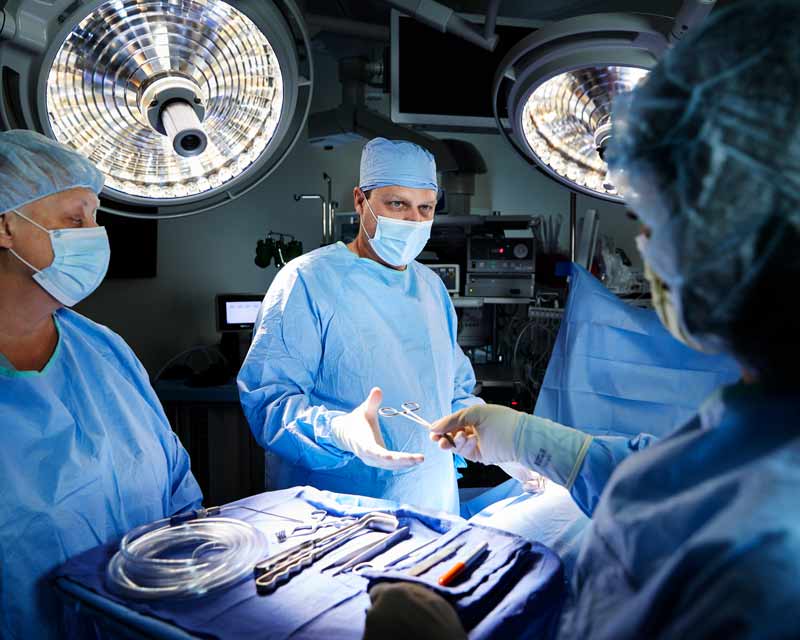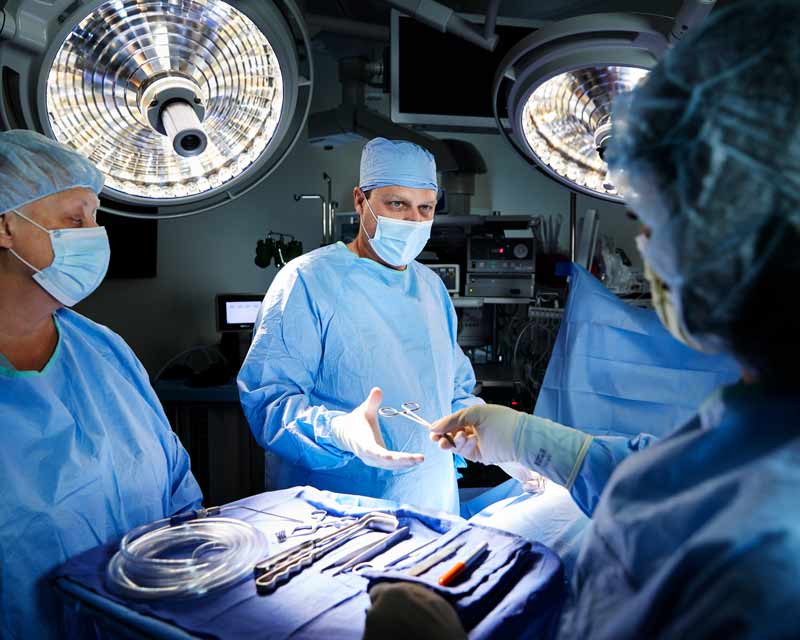
Comprehensive Esophageal Health Center opens with more convenient, streamlined care
 Centrally located services offer more efficient, patient-centered care
Centrally located services offer more efficient, patient-centered care
Now open at Ohio State Outpatient Care New Albany, our newest outpatient care facility, is the Comprehensive Esophageal Health Center at The Ohio State University Wexner Medical Center, a one-stop shop where patients can see physicians about esophageal conditions, undergo testing and — soon — have surgery. It offers patients access to the latest, most innovative care and services in a single, convenient location.
“The idea behind the center, and specifically the physical space, was that we could put our clinic and the GI testing facility all in the same location to streamline care for our patients,” says Kyle Perry, MD, a general surgeon who specializes in esophageal surgery and leads the care team at the Comprehensive Esophageal Health Center.
The foundation for the center was laid in 2019 when gastroenterologists and surgeons at the Ohio State Wexner Medical Center began working in closer proximity to better manage care for patients with the most complicated esophageal conditions.
The center itself, unique in its ability to offer the highest level of expertise and care for esophageal disorders under one roof, came online this summer, when the new outpatient care facility opened. While surgical procedures continue to be performed on the main Ohio State Wexner Medical Center campus for the time being, surgeons anticipate transitioning to the new surgery center in spring 2022.
The Esophageal Health Center specializes in diagnosing and treating the full range of esophageal disorders, including:
It’s a high-volume center for motility procedures, as well as esophageal surgery for hiatal hernia, paraesophageal hernia and GERD, the most common disorder treated there. Roughly 150 to 200 anti-reflux procedures alone are performed each year.
With so many esophageal procedures performed at Ohio State, surgeons gain experience and knowledge that benefits everyone treated at the center, allowing the providers to fine-tune their care.
“The advantage of being a high-volume center is that we see a lot of patients with both straightforward and complex problems,” Perry says. “We have a well-organized approach to how we evaluate and take care of patients.”
Part of this well-organized approach involves using advanced diagnostic technology, such as EndoFLIP®, as well as the latest surgical technology, including innovative noninvasive and minimally invasive treatments like:
Ohio State Wexner Medical Center physicians have safely incorporated the LINX system into procedures since its inception. Ohio State was also the first in the nation to perform a TIF procedure using the EsophyX® device and the first in Ohio to perform robotic Heller myotomy surgery for achalasia.
In all cases, care is personalized to each person’s needs, and patients are offered options whenever possible. Because there’s a focus on research at the Ohio State Wexner Medical Center, physicians can give their patients more specific details of each procedure.
“We track very closely, on the surgical side, the outcomes of our operations and the impact of surgery on quality of life, both positive and negative,” Perry says. “What we tell patients about what they should expect from their surgery and how they can expect it to go is based on our own experience, which we have collected carefully and have published on extensively.”
It’s a team approach that makes exceptional care possible. And the team at the Comprehensive Esophageal Health Center brings vast expertise and experience to the job.
Gastroenterologists here have subspecialty training in esophageal motility, while the center’s surgeons have completed subspecialty fellowship training in minimally invasive and esophageal surgery. Most of these providers focus primarily on esophageal conditions, Perry says.
Others who may be involved in patient care include registered dietitians, physical therapists and counselors who can help patients adjust to the impact esophageal conditions may have on their quality of life. Team members work together to develop a treatment plan tailored to each patient’s unique condition.
The Ohio State Wexner Medical Center has always driven innovation in the treatment of esophageal disorders.
“The last 20 to 25 years, there have been providers here, both in GI surgery and gastroenterology, who have been motivated and interested in pushing the science forward in this space,” Perry says. “Some of it, I think, is history — when you have a long track record of doing something, it can allow you to keep progressing.”
The Comprehensive Esophageal Health Center is a natural next step.
“For a long time, we’ve thought that we provide excellent care,” Perry says.
Now, he says, they’re doing it in a way that’s much more efficient and focused on making things easier for patients.
“I’m very proud of that. I think that’s what the vision has been for this, and we’re going to be able to fulfill that.”